Ruchi Acharya's Blog, page 4
January 16, 2025
Journaling for Beginners: 7 Actionable Steps to Start Your Self-Discovery Journey Today

The human mind is a complex operating system constantly running through various thoughts at a fast pace. Researchers conclude in this study that an adult human’s mind processes about 6,000 thoughts or more daily. Crazy, right?
It’s almost like being put in the middle of a whirlwind; without a post to hold on to, you will get blown away. Journaling can be the post to hold on to when different thoughts, positive or negative, assail your mind. Journaling is simply a way of freezing your many thoughts, experiences, and emotions on paper. It is the process of attempting to understand yourself that eventually leads to self-discovery.
Yes, journaling is great. However, it can be confusing for beginners who want to do journaling right but do not know where to start. In this blog post, beginners to journaling can find answers to confusing questions and get samples that can guide them while they create their first journal entry.
Let’s get started.
Table of Content
Is there a Difference Between a Diary and a Jornal?
How to Start Journaling for Beginners (7 Steps With Sample Entries)
When you began your search for how to start journaling, you probably had an idea in your mind of what it would entail. However, there is a thin chance that what you had in mind was about keeping a diary.
Though the two words, diary and journal, are frequently used interchangeably they have some key differences. While there are a lot of benefits in journaling and in keeping a diary, knowing the differences can help you decide which of the habits you need to build at the moment (no one says you can’t keep both though). Moreover, it also sets the tone for other information you will get in this blog post.
The difference between a diary and a journal exists on these four levels:
In journaling, a person not only identifies his thoughts and emotions but also thinks through them on paper. Journaling involves analyzing your observations, emotions, thoughts and dreams in an attempt to answer the question of how and why. Therefore, the writing style for journaling is usually more expressive. On the other hand, a diary entry is usually a chronological account of activities that occur in a day. It may or may not contain emotions and thoughts you get from the activities.
While writing journals focus on recording emotions, thoughts, and observations, diaries focus on recording facts about activities or personal experiences.
Since a diary is a daily account of what happens to a person, it should be written every day, as much as possible. Diary entries also come with a date to not only identify when the entry was made but also to account that the entry records the event of the said day. However, journaling can happen less frequently than diary writing, it simply depends on your personal needs and goals.
The purpose of keeping a diary is to keep track of daily activities and thoughts that you have. In Anthony Quinn’s words: Writing a diary is a great way to offload – and, if memory fails, it’s a wonderful window into the past. However, the purpose of journaling goes beyond keeping a record of goals and thoughts. It is geared towards growth and self-discovery.

Now, that you have decided to start journaling, these steps will guide you through the basics so you can start writing your journal entry.
There are different types of journals which you can keep, from personal reflective journals to creative journals and even travel or food journals. The type of journal you should keep and the theme that governs its writing depends on the answers to the question; why do I want to start journaling? What are the goals I hope to achieve? Answering these questions also helps to keep you going when you don’t feel so motivated.
To get you started with some ideas, here are examples of journals you can keep, with some sample entries.
These cover reflections of your thoughts, personal relationships and emotions. They contain inner broodings of activities that occur during the day. Reflective journals are an example of personal journals used for therapy.
Sample Entry
Date : January 15, 2025
Today felt like an emotional rollercoaster. I had an unexpected argument with Sarah, and I can’t stop replaying it in my head. I feel like I overreacted, but there’s also a part of me that feels unheard. Why does it always feel so hard to express myself without sounding defensive?
I think this tension stems from the stress of work lately—juggling deadlines has left me feeling drained. I need to work on better communication, even when I'm under pressure. I’ll try to talk to Sarah tomorrow and clear things up.
On a positive note, I felt such warmth when I looked at the sunset this evening. It reminded me of the family vacations we used to take when I was little. Moments like that make me want to hold on tighter to what really matters.
You can record creative ideas and aspirations that pop into your mind in this journal. This type of journal contains a bank of your ideas and a future you see.
Sample Entry
Date: January 15, 2025
Idea: A Community Garden for Mental Health
I had this idea about creating a community garden where people could volunteer, grow their own produce, and use the space to unwind. It could include little therapy nooks hidden among the plants, and maybe even journaling stations.
The idea feels so fulfilling—combining nature, mental health, and creativity. If I start small, maybe I could pitch this to a local community center. I’ll research grants for community projects tomorrow.
These types of journals help you plan, track and review your goals. It is like your goal sketchbook containing goals, actionable steps to achieve them and periodic reviews. You can do this with our wellness journal.
Sample Entry
Date: January 15, 2025
Monthly Goal: Read 3 Books Daily Actions:
Finish Chapter 7 of Atomic Habits
Research summaries for two other books I’ve shortlisted
I’m on track with my goal so far. Reading has helped me manage my screen time better. The key is consistency—just one chapter a day, and I’ll get there. By the end of the month, I hope to incorporate some of the tips I’ve learned about habit stacking into my daily life.
This helps you track daily habits and plan your daily to-dos. With bullet journals, you can better organize your daily schedule, ensuring you do key things relevant to your goals per day.
Sample Entry
Date: January 15, 2025
Daily Habits:
☑ Drink 8 glasses of water
☑ Morning meditation
☑ 30-minute workout
☐ Read for 30 minutes
To-Do List:
Email clients about the project timeline
Call Mom
Schedule dentist appointment
Prep dinner for tomorrow
These type of journals is used to record your walk with God. Your lessons about Him as learnt from His words, experiences, mistakes and even by listening to other people of faith. This keeps you more mindful of God’s presence with and will for you.
Sample Entry
Date: 30th May, 2024
Date: January 15, 2025
Psalm 46:10 — “Be still, and know that I am God.”
This verse feels so timely. My heart has been restless these past few days, worrying about things I can’t control. Tonight, I meditated on the idea of surrender—letting go and trusting in God’s plan.
During prayer, I felt a sense of Christ's peace wash over me. It’s like a reminder that I don’t have to carry every burden alone. I also want to work on extending grace to myself when I fall short, just as God extends grace to me daily.
This type of journal allows you to express your ideas through art.
Sample Entry
(Doodled flowers and clouds on the margins of the page)
Today, I sketched an idea for a mural inspired by the colours of dawn. It’s a gradient of soft pinks and blues, with silhouettes of birds in flight. I want to use this piece to symbolize hope and new beginnings.
I’m thinking of experimenting with watercolours for this project—it’ll give the sky a dreamy, ethereal feel. I’ll practice blending techniques this weekend.
It is important to state the sample entries only give you a clue of what each journal type looks like in action. It is not a set-on-stone pattern for writing your journal.
In this next step, you must decide what platform to start writing your journals. Both journaling platforms have their benefits, depending on your preference and journal needs. The table clearly states what to expect from both journaling platforms so you can decide. Since you would mostly be required to keep more than one type of journal, you can use a mix of the two journaling platforms.
As we mentioned previously, journaling can be done less frequently than diary writing. However, it is important to set a routine for your journaling. This helps you stay consistent and get the most benefits from journaling. Your routine should be something that works for you taking into account the goal for each journal type. For instance, your goal-oriented journal would require you to journal periodically maybe on weekends or month ends. Settle the frequency and time of the day workable for you and stick to it.
So you have settled all the pre-writing steps. Now for you to actually start writing, this is the first thing you need to do. Seek out a space that allows you to focus and with minimum distractions. Remember that journaling should act as a post that slows down your thoughts, avoiding distractions means that you can focus on your thoughts one at a time to make sense of them. While it is advised that you stick to the journal writing schedule you have set up, you must not have a fixed place for journaling. Try out written in different places that stir your imagination without distracting you.
This tip is quite clear. Start small. Begin with one or two lines. Don’t pressure yourself to write a full-page journal entry. Simply record a thought that stood out for you during the day or simply note down how and what you feel at the moment. You would also find prompted journals to be a great help.
Try out expressing your thoughts in different forms. If just expressing your thoughts through writing feels repetitive, try out writing poetry or using bullet points to note down what you want to say.
Celebrate small wins
Appreciate the little steps you have taken so far. Treat yourself and reward yourself for the effort you have put into self-awareness and growth. Also, when you record an achieved milestone, don’t forget to celebrate that too. Your gratitude journal will be a good place to record your wins.
Starting something new can feel overwhelming, but remember that journaling doesn’t have to be perfect. It only has to be yours. As a beginner, if you want to start journaling, an important step to take is to start. Write one word, one sentence, or even just jot down how you’re feeling right now. There’s no right or wrong way to journal; it’s all about what works for you.
Think of journaling as a gift you’re giving yourself—a moment of peace amidst the chaos, a place to dream, reflect, and grow. Don’t wait for the perfect time or the perfect words. Your journal is not the place to strive for perfection. Start small, stay consistent, and watch how your journaling habit transforms your perspective, bringing clarity to your thoughts.
Ready to begin? Take the first step by choosing a journal that inspires you. Whether it’s a beautifully bound journal or a digital app, the key is to make it yours. Start today, and let the pages of your journal become the foundation of your personal journey.
ABOUT THE AUTHOR

Akpadolu Chioma is a writer who strives to use the power of words to heal, inspire and give value to her readers. When she is not lost in the world of writing, you can find her engrossed in mystery novels, enjoying a good movie, cherishing moments with family or deepening her Christian faith.
January 9, 2025
Self-Publishing vs Traditional Publishing: Make the Right Choice for Your Book

Nothing beats the pleasure of seeing other people enjoy your creative work. Therefore, in your journey as a writer, you must have asked this question: Do I self-publish my book on Amazon or consider traditional publishing? Even budding writers with no book ready to be published yet ask this question as it prepares them to hit their creative goals.
The truth is that every book has its own unique needs. While it may seem confusing to choose a publishing route, it is important to appreciate that these publishing options are available to us today. This makes it possible for every book’s unique need to be met and, hence, its maximum potential to be explored.
This blog post is going to be self-publishing vs traditional publishing. We present you with the pros and cons of each publishing route and also attempt to help you identify the unique needs of your book. If you read through till the end, whether as a writer with a book ready to be published or a writer still nursing a book idea, you will be armed with the necessary information needed to make a clear and right decision for your book.
Let’s get into it.
As the name suggests, self-publishing is the process of publishing a book without involving a publishing team or firm. In this publishing route, the author must take care of all the creative processes involved in publishing a book, from editing to marketing, or outsource the professional services he requires for a fee.
However, in traditional publishing, an author leaves their work to the care of a publishing team. This expert team then handles the entire creative process including editing, book covers, printing and even marketing. Traditional publishing frees up the author to do what he enjoys and does best.
The question of which publishing model is better, self-publishing or traditional, depends on the book to be published, the resources available to the author, and the author’s preference. Both self-publishing and traditional publishing offer authors some perks and some challenges. These must be well understood before a decision on what publishing model to take is made.

Traditional publishing offers authors a team of professionals who work at every stage of the publishing process to bring out the best in their books. Taking the traditional route also means that authors get to work with a literary agent who guides them through the industry and gives them the momentum they need to thrive in their careers. In simple terms, when an author signs a deal with a traditional publishing firm, he can be sure his books are in safe hands and thus he should have more time to do what he loves, write.
Traditional publishing firms use their large connections to ensure that your books are found in large bookstores worldwide. They help the author secure international book deals, and schedule interviews or readings. This gives an author a boost of visibility and credibility, enabling him to grow his career as an author more quickly than self-publishing.
Unlike self-publishing, traditional publishing requires the author to make no upfront payment. The royalties entitled to the publishing firm when a book is sold cover the expenses for the publishing process. This advantage is great for writers without a lot of capital.
It must still be noted that some authors who use the traditional publishing model still use some of their money to fund some of the creative process to give their book the necessary extra boost. This is because traditional publishing houses work with a budget. It’s business, after all. They have a budget assigned for each publishing stage of a book. Therefore, if an author is working with a resource-constrained publishing house, the book may not get the best service unless the budget is supported.
This is a key appeal of traditional publishing. While self-publishing requires authors to pay in advance before their manuscript is published, traditional publishers pay their author, in instalments, a signing bonus. This is the amount which an author can expect to realize from his books regardless of the outcome of its marketing. A first-time author may expect from $1,000 to $10,000. However, this bonus depends on the popularity of the author and how much the firm wants to publish your book.
Taking the traditional publishing route gives an emerging author the credibility he needs to take a stand in the industry. It opens up opportunities for awards and bestselling tags.
By signing a book deal with a traditional publishing house, writers give up their creative control. In this model of publishing, writers may have to compromise and end up making changes they do not entirely agree with publishers' push for what they think would sell. This also plays out in other stages in the creative process, from the cover design to marketing. Publishers tend to assign more budget to popular books of the season and then publish some books with little or no promotions. Unlike in self-publishing where the author calls the shots.
In this model, authors can expect 10 to 15% of the retail price per book sale, which is much lower than what the self-publishing model offers.
To take the traditional publishing route, writers must first seek to land a business deal. However, even that entry point can prove to be very difficult, with about 99% rejection of submitted works.
This is one of the biggest appeals of self-publishing. Authors get to earn a lot more per book sale than they would if they went through traditional publishing. Typically, an author can get from 35% to 70% of the retail price per book sale which is about 25% to 55% more than what traditional publishers offer authors.
At face value, this is great. However, remember that these royalties depend on whether a book is sold or not. This advantage of self-publishing can only be exploited if the author has the necessary resources and patience for marketing and brand building which can be very profitable in the long run.
Creative control means that the author has the final say on what happens to the book. The author does not need to change any part of their story to satisfy a publisher’s preference. With this creative control, you get to tell your story and display and distribute your story the way you want to do so.
Self-publishing is made possible with platforms like Amazon KDP, Okadabooks and so on. Thanks to these platforms, it takes less time for a book to go live compared to traditional publishing. With Amazon KDP, your book can go live within 3 - 10 business days.
Self-publishing platforms also make your work available for a wider audience than traditional publishing. Thanks to tools like ebooks and print-on-demand, readers from all over the globe can read your work and request a hard copy if they need one.
Though self-publishing means that you are not working with a publishing firm, you still don't have all the skills you need to implement the various services your manuscript needs before publishing. There will be a need to seek out professional services for some stages in the creative process.
While traditional publishers do the gruesome work of editing, proofreading, designing and even distributing and only get their pay when your book is sold, self-publishing requires you to pay for the professional services you can’t render for yourself upfront.
This can be a huge challenge for people with little or no capital. Yes, thanks to technological advancement, tools like Canva make it possible for authors to execute the creative processes themselves. However, professional input is still required to ensure your book comes out at its best.
In self-publishing, you would have to figure out and implement how to market and promote your book. This usually requires time, financial resources and expertise. It is an important challenge to consider as the high royalty incentive of self-publishing is tied to selling your book. Indie authors typically use social media to market their self-published books. You should try it too.
If one of your dreams of becoming a writer is to see your book in a brick-and-mortar bookstore, then self-publishing may not be the best route for you to take. Usually, bookstores prefer books recommended by traditional publishers. This could be because of the prestige attached to a book that passes through the rigorous and trusted creative process of a popular traditional publishing firm. While it is difficult for self-publishers to get bookstore visibility, it is not impossible. It only requires putting in your best work, a lot of time and building grassroots connections.
A careful look at the challenges of self-publishing reveals that known authors will not face any of those challenges if they decide to self-publish. Yet, self-publishing seems like the best route for budding writers who find it difficult to find a literary agent. Therefore to solve the challenges of self-publishing, new writers need to find a way to breach the gap and get their name out there. Wingless Dreamer Publisher offers that breach.
Wingless Dreamer Publisher offers writers the opportunity to get their work published, alongside others, simply by participating in monthly contests. This publishing firm does the editing and proofreading of works that win the contest, then compiles the works into a book. The firm covers the design of the book and its marketing too. Imagine a new writer consistently gets his works published with Wingless Dreamer, he/she will have the boost he requires to get his name out to an audience, an audience he can sell to when he is ready to self-publish.
Choosing between self-publishing and traditional publishing boils down to the unique needs of your book and your goals as an author. A story that demands full creative control or quick publishing might thrive in self-publishing, while a book requiring professional polish and wide distribution may benefit more from traditional publishing. Consider factors such as your budget, marketing expertise, creative preferences, and career aspirations when deciding. Ultimately, both publishing routes offer incredible opportunities to share your story with the world—what matters most is finding the path that best aligns with your vision and maximizes your book’s potential.
ABOUT THE AUTHOR

Akpadolu Chioma is a writer who strives to use the power of words to heal, inspire and give value to her readers. When she is not lost in the world of writing, you can find her engrossed in mystery novels, enjoying a good movie, cherishing moments with family or deepening her Christian faith.
Self-Publishing vs Traditional Publishing: Which is Better?

Nothing beats the pleasure of seeing other people enjoy your creative work. Therefore, in your journey as a writer, you must have asked this question: Do I self-publish my book on Amazon or consider traditional publishing? Even budding writers with no book ready to be published yet ask this question as it prepares them to hit their creative goals.
The truth is that every book has its own unique needs. While it may seem confusing to choose a publishing route, it is important to appreciate that these publishing options are available to us today. This makes it possible for every book’s unique need to be met and, hence, its maximum potential to be explored.
This blog post is going to be self-publishing vs traditional publishing. We present you with the pros and cons of each publishing route and also attempt to help you identify the unique needs of your book. If you read through till the end, whether as a writer with a book ready to be published or a writer still nursing a book idea, you will be armed with the necessary information needed to make a clear and right decision for your book.
Let’s get into it.
As the name suggests, self-publishing is the process of publishing a book without involving a publishing team or firm. In this publishing route, the author must take care of all the creative processes involved in publishing a book, from editing to marketing, or outsource the professional services he requires for a fee.
However, in traditional publishing, an author leaves their work to the care of a publishing team. This expert team then handles the entire creative process including editing, book covers, printing and even marketing. Traditional publishing frees up the author to do what he enjoys and does best.
The question of which publishing model is better, self-publishing or traditional, depends on the book to be published, the resources available to the author, and the author’s preference. Both self-publishing and traditional publishing offer authors some perks and some challenges. These must be well understood before a decision on what publishing model to take is made.

Traditional publishing offers authors a team of professionals who work at every stage of the publishing process to bring out the best in their books. Taking the traditional route also means that authors get to work with a literary agent who guides them through the industry and gives them the momentum they need to thrive in their careers. In simple terms, when an author signs a deal with a traditional publishing firm, he can be sure his books are in safe hands and thus he should have more time to do what he loves, write.
Traditional publishing firms use their large connections to ensure that your books are found in large bookstores worldwide. They help the author secure international book deals, and schedule interviews or readings. This gives an author a boost of visibility and credibility, enabling him to grow his career as an author more quickly than self-publishing.
Unlike self-publishing, traditional publishing requires the author to make no upfront payment. The royalties entitled to the publishing firm when a book is sold cover the expenses for the publishing process. This advantage is great for writers without a lot of capital.
It must still be noted that some authors who use the traditional publishing model still use some of their money to fund some of the creative process to give their book the necessary extra boost. This is because traditional publishing houses work with a budget. It’s business, after all. They have a budget assigned for each publishing stage of a book. Therefore, if an author is working with a resource-constrained publishing house, the book may not get the best service unless the budget is supported.
This is a key appeal of traditional publishing. While self-publishing requires authors to pay in advance before their manuscript is published, traditional publishers pay their author, in instalments, a signing bonus. This is the amount which an author can expect to realize from his books regardless of the outcome of its marketing. This bonus depends on the popularity of the author and how much the firm wants to publish your book.
Taking the traditional publishing route gives an emerging author the credibility he needs to take a stand in the industry. It opens up opportunities for awards and bestselling tags.
By signing a book deal with a traditional publishing house, writers give up their creative control. In this model of publishing, writers may have to compromise and end up making changes they do not entirely agree with publishers' push for what they think would sell. This also plays out in other stages in the creative process, from the cover design to marketing. Publishers tend to assign more budget to popular books of the season and then publish some books with little or no promotions. Unlike in self-publishing where the author calls the shots.
In this model, authors can expect 10 to 15% of the retail price per book sale, which is much lower than what the self-publishing model offers.
To take the traditional publishing route, writers must first seek to land a business deal. However, even that entry point can prove to be very difficult, with about 99% rejection of submitted works.
This is one of the biggest appeals of self-publishing. Authors get to earn a lot more per book sale than they would if they went through traditional publishing. Typically, an author can get from 35% to 70% of the retail price per book sale which is about 25% to 55% more than what traditional publishers offer authors.
At face value, this is great. However, remember that these royalties depend on whether a book is sold or not. This advantage of self-publishing can only be exploited if the author has the necessary resources and patience for marketing and brand building which can be very profitable in the long run.
Creative control means that the author has the final say on what happens to the book. The author does not need to change any part of their story to satisfy a publisher’s preference. With this creative control, you get to tell your story and display and distribute your story the way you want to do so.
Self-publishing is made possible with platforms like Amazon KDP, okadabooks and so on. Thanks to these platforms, it takes less time for a book to go live compared to traditional publishing. With Amazon KDP, your book can go live within 3 - 10 business days.
Self-publishing platforms also make your work available for a wider audience than traditional publishing. Thanks to tools like ebooks and print-on-demand, readers from all over the globe can read your work and request a hard copy if they need one.
Though self-publishing means that you are not working with a publishing firm, you still don't have all the skills you need to implement the various services your manuscript needs before publishing. There will be a need to seek out professional services for some stages in the creative process.
While traditional publishers do the gruesome work of editing, proofreading, designing and even distributing and only get their pay when your book is sold, self-publishing requires you to pay for the professional services you can’t render for yourself upfront.
This can prove to be a huge challenge for people with little or no capital. Yes, thanks to technological advancement, tools like Canva make it possible for authors to execute the creative processes themselves, however, professional input is still required to make sure your book comes out at its best.
In self-publishing, you would have to figure out and implement how to market and promote your book. This usually requires time, financial resources and expertise. It is an important challenge to consider as the high royalty incentive of self-publishing is tied to selling your book. Indie authors typically use social media to market their self-published books. You should try it too.
If one of your dreams of becoming a writer is to see your book in a brick-and-mortar bookstore, then self-publishing may not be the best route for you to take. Usually, bookstores prefer books recommended by traditional publishers. This could be because of the prestige attached to a book that passes through the rigorous and trusted creative process of a popular traditional publishing firm. While it is difficult for self-publishers to get bookstore visibility, it is not impossible. It only requires putting in your best work, a lot of time and building grassroots connections.
A careful look at the challenges of self-publishing reveals that known authors will not face any of those challenges if they decide to self-publish. Yet, self-publishing seems like the best route for budding writers who find it difficult to find a literary agent. Therefore to solve the challenges of self-publishing, new writers need to find a way to breach the gap and get their name out there. Wingless Dreamer Publisher offers that breach.
Wingless Dreamer Publisher offers writers the opportunity to get their work published, alongside others, simply by participating in monthly contests. This publishing firm does the editing and proofreading of works that win the contest, then compiles the works into a book. The firm covers the design of the book and its marketing too. Imagine a new writer consistently gets his works published with Wingless Dreamer, he/she will have the boost he requires to get his name out to an audience, an audience he can sell to when he is ready to self-publish.
Choosing between self-publishing and traditional publishing boils down to the unique needs of your book and your goals as an author. A story that demands full creative control or quick publishing might thrive in self-publishing, while a book requiring professional polish and wide distribution may benefit more from traditional publishing. Consider factors such as your budget, marketing expertise, creative preferences, and career aspirations when deciding. Ultimately, both publishing routes offer incredible opportunities to share your story with the world—what matters most is finding the path that best aligns with your vision and maximizes your book’s potential.
ABOUT THE AUTHOR

Akpadolu Chioma is a writer who strives to use the power of words to heal, inspire and give value to her readers. When she is not lost in the world of writing, you can find her engrossed in mystery novels, enjoying a good movie, cherishing moments with family or deepening her Christian faith.
January 2, 2025
12 Classic Books to Read in 2025 to Enhance Your Writing
It’s the start of a new year—a perfect time to plan out the books to read throughout the year. This is especially important for writers, as reading deeply and widely helps to enrich your creative work.
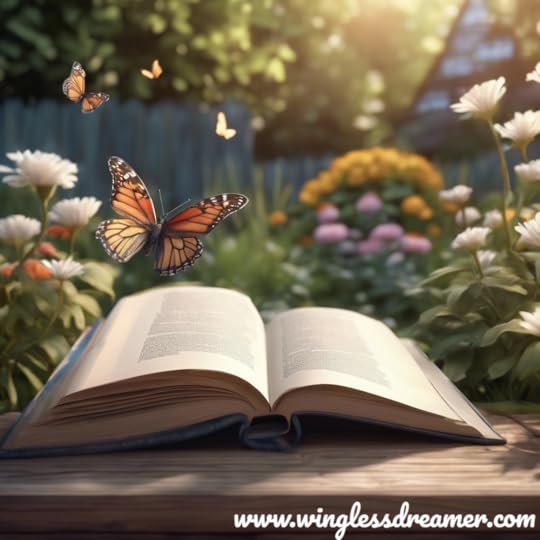
Books expose your mind to the cultures of places you may have never been to. It also allows you to experience the literary concepts you are taught practically. As a story unfolds, you see and learn how punctuation, sentence construction, character development, plot, and setting work together to create a mind-blowing experience. And classic books are a great place to start.
Yes, classic books may prove difficult to read. However, these books are regarded as great examples in their various genres for a reason. They are books that have stood the test of time, not forgotten despite many others published in the same genre. This quality of not being forgotten can be due to the book's timeless and universal theme, well-rounded and unforgettable characters, and compelling plot. By reading these classic books, you can learn how the authors managed to pull it off and then, as Austin Kleon would say, steal like an artist! Apply the techniques observed to your writing.
In this blog post, we share 12 classic books you should definitely read in 2025. Before we get into that, though, let’s talk about how to read and enjoy classic books for some of us new to reading classic works.

Reading classic literature many times feels daunting. The archaic language and the unfamiliar cultural and social context make them seem intimidating. But have no fear! These strategies will help you navigate and unlock the treasures within these timeless works.
Start with classic books in genres that you already find fascinating. Do you enjoy mysteries, romance, or philosophical explorations? Do you prefer the social commentary of Jane Austen? The raw emotion common to Dostoevsky? Or Tolkien’s world-building? Choosing a book that aligns with your interests ensures that you remain motivated to work through the initial unfamiliarity of the language and style. Our curated list of 12 classics covers a range of genres, so you’re sure to find one that resonates.
Classic books are timeless books, reflecting the era in which they were written. Therefore, before you start reading one, do a research on the historical and cultural era the classic book reflects. This will help you better understand and appreciate the unique nuances of the plots and characters in the book.
Some classics have been adapted into contemporary language, which can serve as a helpful introduction. However, as a writer, you’ll find immense value in engaging with the original text. You will find the sophisticated sentence structure, strong imagery, and unique phrasing inspiring your own writing. Though the language of classic literature may seem unfamiliar at first. Don't let it deter you! Embrace the challenge. The more you work at it, you slowly become used to the language.
Classic novels are often rich in symbolism, subtext, and intricate character development. Don't indulge the urge to skip some long paragraphs. Read slowly, savour each sentence, and allow yourself time to ponder the deeper meanings and implications that make them timeless.
When you have tried out these tips and you still can't flow with the classic book, look out for book reviews or summaries on the classic book you are trying to read. This gives you a general picture of what the book is about and helps you flow better while reading it. We share reviews of books from time to time. Keep an eye out for them by subscribing to our newsletter.
Discussing a classic book with fellow enthusiasts can unlock new interpretations and deepen your understanding. For writers, these conversations can spark creative ideas and help you see the text from multiple angles, enriching your craft.
Finally, into the main section of this blog post! These are the 12 classic books every writer should definitely add to their reading list this 2025. These great books offer valuable lessons in storytelling, character development, and the use of language. Let's get into it.

Set in Victorian England, this intricate tale weaves together the lives of multiple characters, exploring ambition, love, and societal expectations. The key themes explored in this classical book are marriage, social class, women's roles, morality, and self-determination.

A psychological deep dive into the mind of Rodion Raskolnikov, a man who murders to test his moral philosophy, only to be consumed by guilt and existential dread. The key themes explored in this classical book are guilt, morality, justice, redemption, and the human psyche.
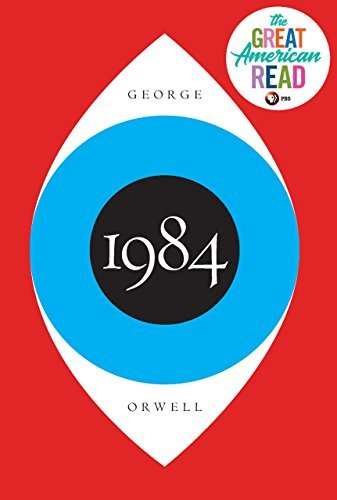
A chilling portrayal of a dystopian society where individuality is suppressed, and surveillance is omnipresent. Winston Smith’s quiet rebellion offers a harrowing look at the cost of freedom. The key themes explored in this classical book are totalitarianism, surveillance, manipulation, and the resilience of the human spirit.

In a future where books are banned, fireman Guy Montag begins questioning his role in a society that seeks to suppress knowledge and creativity. The key themes explored in this classical book are censorship, intellectual freedom, the power of literature, and resistance to conformity. Here is a review of this book
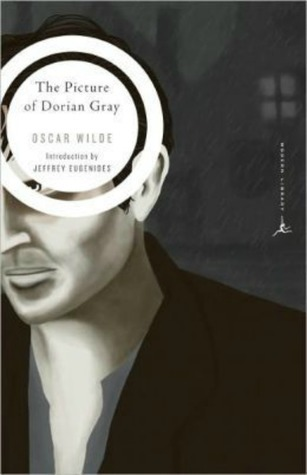
Dorian Gray’s pursuit of beauty and pleasure leads to his moral downfall, as his portrait reflects his true nature while he remains outwardly untainted. The key themes explored in this classical book are vanity, morality, the cost of indulgence, and the duality of human nature. Here is a review of this book.

Meursault’s detached demeanor and existential outlook on life lead to unexpected consequences, prompting profound questions about meaning and morality. The key themes explored in this classical book are existentialism, alienation, freedom, and societal judgment.
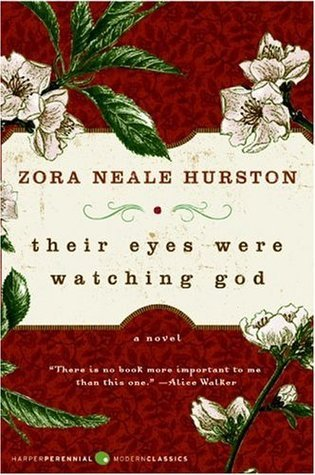
Janie Crawford recounts her journey of self-discovery and resilience, breaking societal norms to pursue her unique path to happiness. The key themes explored in this classical book are love, identity, empowerment, and the pursuit of fulfilment.

Anna’s illicit affair with Count Vronsky clashes with societal norms, leading to devastating consequences in this exploration of passion and moral dilemmas. The key themes explored in this classical book are love, betrayal, societal constraints, and human fallibility.

Haunted by the ghost of her deceased child, Sethe must confront her past as a runaway slave in this powerful exploration of motherhood and trauma. The key themes explored in this classical book are memory, freedom, sacrifice, and the legacy of slavery.

Jane Eyre’s resilience and moral conviction guide her through life’s hardships, culminating in her quest for love and self-respect. The key themes explored in this classical book are independence, morality, love, and social criticism.

Elizabeth Bennet’s wit and courage shine as she navigates societal expectations and finds unexpected love with Mr. Darcy. The key themes explored in this classical book are marriage, class, gender roles, and personal growth.
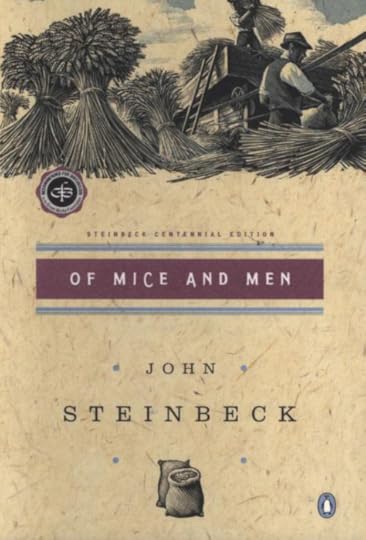
A poignant tale of two migrant workers whose dreams of a better life are thwarted by harsh realities during the Great Depression. The key themes explored in this classical book are friendship, loneliness, the American Dream, and human vulnerability.
There you have it. Pick one out of these classic books and delve in following the tips we shared earlier. There are 12 books, so you can try out one for each month! If you get to actually read these books you would see you writing improve.
ABOUT THE AUTHOR

Akpadolu Chioma is a writer who strives to use the power of words to heal, inspire and give value to her readers. When she is not lost in the world of writing, you can find her engrossed in mystery novels, enjoying a good movie, cherishing moments with family or deepening her Christian faith.
December 26, 2024
Drafting Realistic Goals as a Creative: Tips to Succeed in 2025 and Overcome Blocks

Year-end often brings a bittersweet mix of emotions—the festive cheer of Christmas clashes with the sobering realization of unfulfilled goals. You might feel that familiar pang – disappointment as another year slips away, leaving behind unfinished projects and unrealized dreams. It's tempting to avoid thinking about these "failures", to sweep them under the rug and get lost in the celebrations alone. But within those setbacks, as I would prefer to call them, lie valuable lessons, diamonds in the rough waiting to be unearthed.
Perhaps you vowed to write every weekend, only to be distracted by other commitments. Maybe you dreamt of publishing that short story, but it remains tucked away in a dusty folder. Or perhaps you yearned for your artwork to grace the pages of renowned journals, but those submissions remain unanswered or rejected. Regardless of what you desired to achieve, it's crucial to learn from the year's challenges and use them as fuel for a more successful and fulfilling new year.
This post will guide you through the process of transforming your creative setbacks into actionable goals. We'll explore how to identify the root causes of your struggles, extract valuable lessons from your experiences, and set realistic, achievable targets for the coming year. So, grab your journal and pen, and let's begin this journey of self-reflection.
These 5 steps will help you draft goals that foster growth. it would also give you the required framework for overcoming creative blocks and achieving your goals.
We often shy away from confronting our failures and rejections. However, as long as God keeps you alive, failures or rejections are not the end of the road! By properly analyzing them, you can learn why something didn't work previously and take necessary actions to make it work. When we begin to view setbacks as learning opportunities, we approach them with a different mindset. They transform from obstacles into valuable tools for growth.
Let's delve into your setbacks together. Ask yourself the following questions and jot down your honest answers:
What are the goals you didn't achieve in 2024?
What obstacles prevented you from achieving them? Was it a lack of motivation? A tight schedule? Time management issues? External distractions? Be honest with yourself.
What valuable lessons did you learn about your creative process? Did you discover any strengths or weaknesses? Did you identify any recurring patterns that hinder your productivity? If you can't figure this out yourself, you can ask people who work with you.
By honestly confronting your setbacks, you gain crucial insights into your creative habits and identify areas for improvement.
Now that you have identified your setbacks, the next step is to acknowledge that creative blocks are inevitable. Creative pursuits are marathons, not sprints. There will be times when inspiration wanes, self-doubt creeps in, or external factors disrupt your flow. The key is not to avoid these challenges but to discover ways to manage them.
Here are some tips for reframing your setbacks:
Be Mindful: Journal about your creative struggles, and what inspires you. Are you facing writer's block? What led to it? Did you feel overwhelmed by a large project? When you got excited about a creative idea, what led to getting that idea? Pinpointing the root cause and previous solutions can help you develop targeted and intentional solutions.
Celebrate Small Wins: Don't wait for a finished masterpiece to celebrate and feel accomplished. Acknowledge and celebrate small victories, like completing a daily writing session or finishing a sketch. Remember that it is the tiny drops that finally make up the ocean. Celebrating these small wins helps to sustain your motivation to take it through till the end.
Embrace Imperfection: The fear of failure can be a major creative roadblock. However, creativity flows when you let yourself go. Just start writing or painting. Don't begin by worrying about perfection. Once you've got it all down, you can then attempt to fine-tune your work the best you can. Remind yourself that growth comes from experimentation and that not everything you create will be a masterpiece. And that is fine.
Now that you have carefully analyzed your previous goals, identified the ones you want to go on with and drawn useful lessons, it's time to set creative goals for the new year. Effective goal setting is SMART: Specific, Measurable, Achievable, Relevant, and Time-bound.
Here are some tips for developing actionable creative goals:
Start Small: Don't overwhelm yourself with unrealistic goals. Your analysis of the previous goals should give you an idea of your abilities. Begin with smaller, achievable objectives that fall within your abilities. Of course, your goals should push your boundaries and help you grow. However, it is important to start with smaller goals as it will build momentum and confidence.
Focus on Process: Instead of solely focusing on outcomes (e.g., publishing a book), set process-oriented goals (e.g., write 500 words a day). This will help you stay motivated and make steady progress.
Break Down Large Projects: If you're tackling a daunting project, break it down into smaller, manageable steps. This will make the process feel less overwhelming and help you stay on track.
Even with the best intentions, creative blocks will still arise. Here are some practical strategies to overcome these creative blocks:

Establish a Creative Routine: Schedule dedicated time for creative work in your daily or weekly routine. Treat this time with the same respect you would a work meeting or doctor's appointment.
Find Your Flow: Experiment with different creative routines to discover what works best for you. Some people thrive on structure, while others need more flexibility. This means you would have to carry out periodic analyses of your goals and plans. You don't need to wait till the end of the year to analyze your setbacks and make changes.
Embrace New Tools and Techniques: Learning a new skill or trying a different creative approach can spark fresh ideas and reignite your passion. Reading books like ‘Bird by Bird’ by Anne Lamott is a great tool for creative writers.
Seek Inspiration: Immerse yourself in art, music, literature, or nature. Step outside your comfort zone and explore new creative fields.
Build a Support Network: Connect with other creatives who understand your struggles. Join a writing group, an online community like Wingless Dreamer, or a local art community.
Maintaining motivation throughout the year can be challenging. Here are some tips to stay on track:
Find your purpose: Many times when you are discouraged and you can't find the will inside to keep trying, you need to remember that you were created intentionally and uniquely for a unique purpose. What this means is that God had something in mind while creating you. Something that would impact not just you but many. If you have figured out why He made you a creative, keep it in mind and keep shining that light only you can shine. If you haven't, you can sincerely speak to Him now and ask Him. This answer will keep you going.
Find an Accountability Partner: This is so important. Share your goals with a friend, family member, or fellow creative. The regular check-ins can help you stay motivated and accountable. They can also provide the external push you need to keep going.
Reward Yourself: Celebrate your accomplishments, no matter how small. Treat yourself to something special when you reach a milestone. This is a psychological strategy that helps you build positive habits and keep you motivated.
Take Breaks: Don't burn yourself out. This can block your creativity. Schedule regular breaks to rest and recharge.
Practice Self-Compassion: Be kind to yourself when you encounter setbacks. Everyone experiences creative slumps. Learn from your mistakes and move forward.
As we embark on a new year, remember that creative blocks are not failures, but growth opportunities. By reframing your challenges, setting actionable goals, and implementing practical strategies, you can transform 2025 into your most creative year yet.
ABOUT THE AUTHOR

Akpadolu Chioma is a writer who strives to use the power of words to heal, inspire and give value to her readers. When she is not lost in the world of writing, you can find her engrossed in mystery novels, enjoying a good movie, cherishing moments with family or deepening her Christian faith.
December 19, 2024
It’s Beginning To Look A Lot Like Christmas

Oh, Christmas! The mere mention of it makes me want to sip on a hot chocolate, with marshmallows floating like little clouds in a mug, as the scent of pine wafts through the air. You too? I mean, what’s not to love about this time of year? The world seems to sprinkle a little extra magic everywhere. From twinkling fairy lights to the cinnamon-dusted everything, the smell in the air, the colours around us, it all changes and begins to look a lot like Christmas! But ever wonder why we’re so smitten with Christmas? Let’s unwrap this (pun intended) together, shall we?
Christmas traditions are like old friends. You meet them every year, and it’s as heartwarming as ever. Think about it: decorating the tree. It’s not just hanging ornaments; it’s reliving memories. That star on top? Oh, it’s basically the crown jewel, isn’t it?
Don’t you just adore how a group of people, often strangers, huddles together to sing Silent Night under a starlit sky? If you're anything like me, the off-key ones make it all the more delightful. Then there’s the ritual of leaving cookies and milk out for Santa. Admit it, even as an adult, the idea of sneaking a bite out of those cookies feels so... rebellious.

But hey, traditions aren’t static. They evolve. Some of us now have Netflix marathons of Home Alone instead of traditional church visits, but the spirit? Oh, it’s alive and thriving.
Ah, folklore. The stories that give Christmas its sparkle. Did you know that before Santa became a Coca-Cola mascot, he was a mysterious figure named St. Nicholas? Picture this: a kind-hearted bishop from what’s now Turkey, sneaking around to drop coins into the stockings of the needy. Sounds like the original Robin Hood, right?
Then there’s Krampus, the not-so-jolly counterpart of Santa. Legend says he’d scare naughty kids into behaving. Like, imagine Santa’s “Ho Ho Ho” with a hint of run for your life! Europe, you’ve got some dark imagination, I tell you.
And how can we forget the Yule log? Nope, not the edible one (though those chocolate cakes are divine), but the one you burn. It’s a Nordic tradition that celebrates light, warmth, and hope. A metaphorical hug in the cold, if you will.
Let’s talk about the star of the show: Santa Claus. Here’s a question—do you remember the moment you found out Santa wasn’t real? Or is he? (Either way, who wouldn’t want thoughtful gifts on Christmas when they wake up)

Santa’s story is like a snowball. It’s grown bigger and brighter over centuries. From St. Nicholas, the generous bishop, to the Dutch Sinterklaas who arrived in New York, the man in red evolved. By the 1820s, Clement Clarke Moore penned ’Twas the Night Before Christmas, giving Santa his reindeer sleigh and chimney-diving abilities. Then Coca-Cola added a splash of red to his outfit in the 1930s, and voilà, we have the Santa we all know and love today.
But what makes Santa magical? It’s not just the gifts (although, let’s be real, they’re a big part of it). It’s the belief. The sheer joy of waking up to surprises under the tree. The letters were sent to the North Pole. The cookies were half-eaten by morning. It’s that childlike faith that even when the world gets chaotic, a jolly old man might just make it better.
Ultimately, Christmas isn’t just a holiday; it’s a feeling. It’s the nostalgia of childhood, the comfort of togetherness, and the hope for something magical. Even if it’s just a break from the mundane. It’s the only time of year when it’s socially acceptable to wear glittery sweaters with big bows on them, binge on fruitcake (okay, maybe not fruitcake), and believe that reindeer can fly. It’s that time of the year when we recall all the names of Santa’s reindeer. You know there’s Dasher, Dancer, Prancer, Vixen, Comet, Cupid, Donner, Blitzen. But do you recall the most famous of all? Dum-da-dum-dum-dum- Rudolph the red nose reindeer… Oh, what a lovely Carol!
So, dear reader, let’s embrace it all. Christmas is not just a festival. It is a culmination of famous folklore, magic, stories, cozy movies with families, gifts, quirky traditions, and the ever-charming Santa. Christmas, in all its glittery, cinnamon-scented glory, reminds us of one thing- the world is still full of magic if only we look for it.
Now, pass me the eggnog. Cheers!
ABOUT THE AUTHOR

Esha is a literature student. All she does is jump from one story to another, taking leaps into the many worlds she has created for herself via books, movies, and art. Inspired by Wellington Wimpy, you can easily catch her eating a burger somewhere.
December 12, 2024
From Meh to Magnificent: A Way to Find Your Higher Self through Kundalini Yoga

Hello Wingless Dreamers,
I don’t know about you, but with 2024 waving its chaotic goodbye, I’m practically leaping into 2025. Why, you ask? Well, let’s just say I turned 2024 into my personal disaster movie—plot twists, bad decisions, and plenty of “oops” moments.
But here’s the thing: I’m ready to hit CTRL+ALT+DELETE on this year and crack open a brand-new chapter. What’s waiting for me in 2025? Who knows! It’s a mystery box, and I’m here for the suspense. Time to wipe the slate clean and dive into the unknown—because fresh starts are where the magic happens.
The good news? I’ve done the homework for you! Over the past couple of years, I’ve devoured books on motivation, spiritual science, and self-help—honestly, I practically had them for breakfast. Crazy? Maybe. But if you’re an avid reader like me, you get it—it’s a love affair only bookworms understand.
So, without further ado, let’s dive straight into an unusual, untraditional, and delightfully unconventional way to revive your higher self and harness it for your emotional and personal growth. Please don't misunderstand me, but this blog is not for feeble-hearted people. Only peak performers and those who already have crossed the line of mediocrity are most welcome. Let's create some world-class transformation. Dreamers, it’s time to shake things up! Ever experienced the magic of Kundalini Yoga or heard about the word "Kundalini Yoga"? No? Get ready to unlock the millionaire's treasure through this blog post.
Magic of a Kundalini Yoga Retreat

I am not going to waste your precious time by stating the same as how significant yoga is or over-explaining the cuteness of the goat or puppy yogas. Here, we are talking about the most omnipotent and probably one of the most dangerous yogas in the world, called "Kundalini Yoga". When Kundalini energy rises, it’s like flipping the switch on these chakras—bringing balance, clarity, and a serious glow-up for your spiritual wellness. If you unlock all the chakras, they say, you can touch, feel, or sense things that commoners can't see or feel. Imagine if you harness the power of deep emotional reasoning, then you can master any personal relationships in the world.
Did you know your body is basically a highway of energy centers? Meet your 7 chakras:
Root chakra (your grounding buddy)
Sacral chakra (hello, creativity!)
Solar plexus chakra (your inner powerhouse)
Heart chakra (all about love and compassion)
Throat chakra (speak your truth!)
Third eye chakra (intuition mode: ON)
Crown chakra (your gateway to the divine)
With regular Kundalini yoga practice, you might just hit the ultimate jackpot: a Kundalini awakening—spiritual enlightenment, anyone? Imagine becoming that one—the "all-knowing, unstoppable force" of your own life. Sounds incredible, right?
Picture this: unlocking your hidden potential, fulfilling every desire, and tapping into a version of yourself so powerful, the world fades into the background. Kundalini Awakening is indeed some hidden treasure for the world-class players.
But here’s the catch—I bet you’ve never truly seen this side of you. So, here’s the deal—based on my personal experience, I’m sharing a few precautions you absolutely must take, or else I might just land in hot water for spilling these beans.
And trust me, this is exactly why pundits, gurus, and Hindu preachers steer clear of talking about "Kundalini Yoga" stuff. They know one thing for sure: as humans, we’re wired to mess up, and one wrong move could leave you spinning and losing your mind. So tread carefully, Wingless Dreamers!
Alright, enough with the suspense! Let’s break it down with solid scientific facts, biological reasoning, and a psychological perspective. Kundalini Yoga makes you aware of your dormant energy. My team will kill me if I explain you through this example - but here goes nothing. Basically, imagine the sensation of being high and drunk—that’s the kind of energy I’m talking about. It’s intense, electric, and can make you feel like you’re floating on a cloud of pure vitality. I know, right?

UNLOCK DORMANT ENERGY
The word "Kundalini" from Kundalini Yoga itself means coil. So, basically, through mantras, yoga postures, meditation, and focus, you're activating the powerful Kundalini energy coiling at the base of your spine, pushing it upwards to awaken your fullest potential. It’s like turning on a hidden power switch within you!
BOOSTS MENTAL CLARITY
Ho! Ho! Ho! Christmas is coming early this year! I don't know about you, but I'd love to clear my mind and organize all those chaotic, creative thoughts in one place. Let’s face it, it can get crazy inside your head. But with the combination of breathwork, movement, and meditation, you can clear away the mental fog and sharpen your focus. You’ll find yourself, without even trying, ditching the endless scrolling on your phone or Netflix binges. Instead, you’ll enjoy wandering through nature’s trails or even the bustling concrete jungle. You’ll begin to appreciate your surroundings, finding beauty even in the most worn-out or neglected places.
Before you know it, you’ll stop rushing, slow down, and start admiring the shapes and colors around you.
Well, I’m at that stage of my chakra journey. Say goodbye to stress and hello to a zen state of mind!
RISE OF HIDDEN FEARS
It may sound alarming, but I've been there, and trust me, I wasn't ready either to deal with my past traumas. But guess what? The best thing about Kundalini Yoga is that you're not bound to be forced. Things will come to you eventually without any haste. You can mould the process as per your comfort.
As it awakens energy, it can stir up emotions that need healing. It may bring something up from your past or childhood. This process may bring up hidden fears, but it’s all part of the journey to emotional freedom.
Don’t fret! It’s not all thorns—there are plenty of roses too. Now, I can't speak for everyone who’s successfully unlocked their chakras, but for me, I’ve started to stumble upon some childhood memories that were locked deep in my subconscious. I even remember things from when I was 4 years old. You’re probably thinking, "What a hoax! Who remembers anything from when they were 3 or 4?" Well, I did! While professionals might be able to access those memories with the snap of their fingers, for amateurs like me, it comes in random bursts and in a totally uncontrollable way. So, think of Kundalini Yoga as this exciting journey, revealing layers of your past and your potential—one surprise after another!
SUPERHUMAN LIKE PHYSICAL VITALITY
Let’s be real: Kundalini Yoga won’t magically give you the power of a Kung Fu master or unlock secret martial arts moves for free. Sorry, no hidden superhero abilities here! But what it will do is unlock your inner energy and bring about a whole new level of mental and physical awareness. You would no longer have a tired mind or body. Your knee pain, joint pain, or any other physical discomfort is gone with the wind before even you realise that.
Kundalini Yoga aligns your body, mind, and spirit, creating a sense of wholeness and inner peace that radiates outward. I know, I know—you're probably hoping for a magical glow to start radiating from you. But that's simply not happening. No instant halos or glowing auras, my friend. However, what you will experience is a deeper connection with yourself and a shift in your energy that feels pretty darn close to it! People around you will definitely notice the positive aura that you, knowingly or unknowingly, will bring along with you.
Ultimately, Kundalini Yoga is about awakening to your true potential, breaking free from limitations, and embracing life with open arms.
Precautions to Take While Practicing Kundalini Yoga (On or Off the Mat):

So, before you go down that rabbit hole, take these precautions to stay grounded and keep the energy flowing in your favour. Always practice under the guidance of a professional or someone well-versed in its techniques—this energy is powerful, and trust me, you don’t want to awaken it the wrong way.
Since this yoga doesn't include a set of exercises focusing on good body postures but also, Kundalini Yoga requires adequate breathing, chanting mantras, performing kriyas, and learning mudras. For that, you need a guru—someone who’s a master of spiritual awakening, capable of snapping you out of those runaway thoughts when they veer off course. A true guide knows exactly how to steer you back to your centre when you’re lost in the mental wilderness.
Yes, you've got to take precautions both on and off the mat. Once you’ve unlocked and balanced your basic chakras—the first chakra—even before diving into the rest six chakras, you’ll start noticing big changes in your life. It’ll feel like the universe itself is conspiring in your favour, opening doors and bringing opportunities. Although the change is slow, in the beginning, your mind will feel light and carefree. You don't budge yourself anymore with the noise, pollution, or overall communal degradation. You don't become a modern monk overnight, so please don't act like one. It's embarrassing. Anyway, just be careful with the change, but don't be afraid of it.
With this ample amount of energy, you must learn to direct your astronomical focus on self-growth and communal growth.
I admit, flying high is fun, and I’m not here to stop you from being experimental. But here’s the thing—don’t lose sight of your true goal. Don’t waste endless hours at clubs or get lost in the technicolor laser lights. Deutilizing your energy is a curse in itself, because that’s when your procrastinator or sloth avatar makes a comeback. And all that hard-earned dormant energy you’ve awakened? It’ll slip right through your fingers if you’re not careful. Keep your focus and let your energy work for you, not against you!
Kundalini-Awakening is afraid of only one thing which is mediocrity.
Stop running errands on loose ends where things are not important to you.
In my case, I walked away from my hard-earned job to dive into running this publishing company. It’s been nothing short of enriching and full of life. This is something I would have never done as a brown Indian woman coming from a small town.
Whoops! Didn’t I mention it? There are always two sides to the coin, like yin and yang. Similarly, we got two sides of the Kundalini Awakening as well.
In the world of Kundalini Yoga, you're awakening your energy—now it’s up to you to choose which side to listen to! And here’s the twist, The old Cherokee said it best: "The one that you feed." In life, you get to choose which wolf to nourish. Will it be the one of joy, peace, love, and all things good? Or will you feed the grumpy, negative one? The choice is all yours!
Kundalini Yoga's catch: if your mindset veers toward negativity or pessimism, you might feel like the whole world is working against you but when veers toward positivity, the world is all yours.
Everything around us vibrates, which means the energy we emit and receive—whether good or bad—affects how our spirit reacts and makes decisions. It’s like tuning into a frequency; what you send out is what you attract! As a mediator or say, a high-yielding possibilitarian - you must surround yourself with the essentials. The less you get caught up in trivial activities, the quicker you’ll breeze through to your goals. Embrace minimalism—it’s all about focusing on what truly matters.
So, grab your mat, channel your inner energy, and let Kundalini Yoga work its magic! It’s like a spiritual espresso shot that elevates your mood, awakens your enlightened self, and unleashes your dominant power—because who doesn’t want to feel like a cosmic superhero in charge of their own vibe?
On that note, I will bid you farewell. See you in the next blog post, next Thursday.
ABOUT THIS BLOGGER
RUCHI ACHARYA

Ruchi Acharya, hailing from the vibrant city of Mumbai, India, is a visionary in the literary world. As the founder and driving force behind Wingless Dreamer, a dynamic publishing company, she is dedicated to nurturing and promoting fresh, creative voices. With a deep passion for storytelling and a commitment to quality literature, Ruchi has established Wingless Dreamer as a haven for writers and readers alike. Her work continues to inspire and shape the literary landscape, one dream at a time.
Website: https://www.ruchiacharya.com/publications
December 4, 2024
The Best Books to Gift Someone Coping with Loss: Comfort Through Words
When someone we care about is coping with loss, it’s often difficult to know exactly how to offer help. Grief is a deeply personal experience, and it can feel like no words are quite enough to ease the pain. In moments like these, providing support that respects the grieving process while offering comfort is essential. One unexpected yet powerful way to do this is through books.

The best books to gift someone with grief don’t merely fill silence—they offer companionship. They create a safe space for individuals to feel understood, help them make sense of their emotions, and inspire hope when they are ready to move forward. Grief affects us in many ways—emotionally, physically, and psychologically. While healing is neither quick nor linear, finding solace in the pages of a well-chosen book can offer moments of relief in an otherwise tumultuous time.
Research shows that grief is a multifaceted response to loss that impacts both our mental and physical health. Psychologists note that while there is no “right” way to grieve, finding ways to process emotions, whether through conversation, art, or reading, can help someone work through the pain. For those in mourning, literature has the unique power to speak to the heart, helping people understand and reflect on their emotions in a way that feels both intimate and liberating.
If you’re searching for a meaningful way to offer comfort to someone coping with loss, consider gifting them one of these books. They provide emotional support, validation, and guidance on navigating grief with gentle empathy and hope. Here are five deeply moving and relatable books that can help someone cope with loss through the power of words.

Joan Didion’s The Year of Magical Thinking is a powerful and moving account of grief. In this memoir, Didion recounts the sudden death of her husband, John Gregory Dunne, and the illness of their daughter, Quintana Roo. Through her sharp, introspective writing, Didion captures the disorienting and often irrational thoughts that accompany profound loss.
Psychologists often describe grief as a psychological process that can distort reality. This “magical thinking,” as Didion poignantly names it, is a common response to loss. It’s the sense of disbelief that the loss could be real, or the irrational hope that somehow it might be reversed. This type of thinking is an essential part of the grieving process, and Didion’s narrative portrays it with painful clarity.
For anyone feeling overwhelmed or unable to make sense of the contradictions in their grief, The Year of Magical Thinking offers an empathetic reflection of this emotional turbulence. By gifting this book, you’re not just offering a story; you’re offering validation and comfort for someone who may be questioning their feelings during such a difficult time.
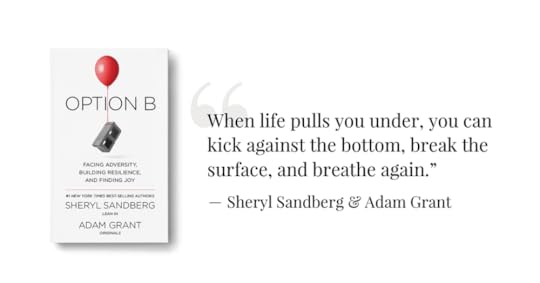
Option B by Sheryl Sandberg and psychologist Adam Grant is a remarkable blend of memoir and science-backed advice on resilience. After the sudden death of her husband, Dave Goldberg, Sandberg teamed up with Grant to explore how people can cope with adversity and build emotional resilience in the face of tragedy.
This book offers a unique perspective on grief, presenting it as not just an emotional experience, but also an opportunity for personal growth. Option B combines scientific research and personal insights, helping readers build resilience so they can not only survive loss but find ways to thrive in its aftermath. Sandberg’s insights into emotional support, reframing negative experiences, and finding meaning are invaluable for anyone struggling to move forward after a loss.
Option B is one of the best books to gift to someone coping with grief since it provides both practical tools and emotional encouragement. Though grounded in research, it is deeply personal, making it both relatable and empowering for anyone in mourning.
3. The Bright Hour: A Memoir of Living and Dying by Nina Riggs: A Beautiful Meditation on Life and Death
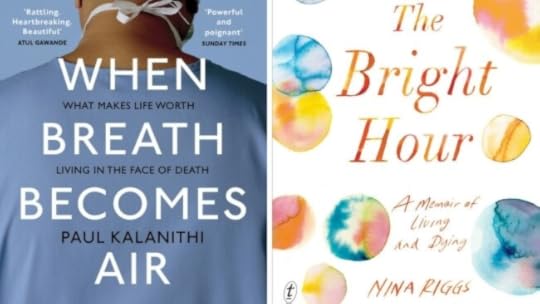
Nina Riggs’ The Bright Hour is an extraordinarily beautiful reflection on life and death. Diagnosed with terminal breast cancer, Riggs writes about facing her mortality while savoring every moment of life. She explores the inevitability of death, the impact on her family, and the search for meaning in the face of such devastating news.
What makes The Bright Hour particularly poignant is Riggs' ability to discuss death without diminishing the beauty of life. The book acts as a meditation on the preciousness of each moment, even as she faces the inevitable. For those coping with a terminal diagnosis or the loss of a loved one, Riggs’ writing is both sobering and uplifting, reminding us that life, though fleeting, is filled with moments of grace.
Her ability to blend humor with deep philosophical insights makes this one of the best books to gift someone grieving. It’s a testament to finding joy and meaning in life, even when death is imminent. Her words inspire readers to embrace the light that still exists, even in the shadow of loss.
When Breath Becomes Air by Paul Kalanithi: A Neurosurgeon’s Final Reflection on Life and Death
When Breath Becomes Air by Dr. Paul Kalanithi is a poignant memoir that combines the author’s journey as a neurosurgeon with his reflections on mortality after being diagnosed with stage IV cancer. Kalanithi’s account blends medical expertise with profound insights into the intersection of life, death, and meaning.
Psychologists argue that confronting death often leads to deep self-reflection and a reevaluation of life’s priorities. Kalanithi’s memoir embodies this transformation, urging readers to reflect on their own lives, careers, and legacies. When Breath Becomes Air is more than just a book about dying; it’s a book about how to live fully in the face of adversity.
This book is one of the best books to gift someone coping with loss, as it speaks to the fragility of life while inspiring readers to live with purpose. It offers both comfort and clarity, making it an invaluable resource for those navigating grief.
5. A Grief Observed by C.S. Lewis: A Raw and Honest Exploration of Grief
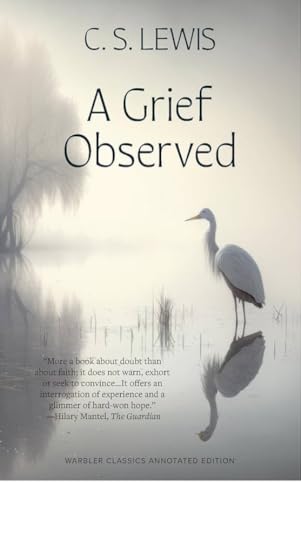
C.S. Lewis’s A Grief Observed is one of the most raw and poignant books about the emotional toll of losing a loved one. Written after the death of his wife, Joy Davidman, this book delves into Lewis’s personal experience with grief, confronting feelings of doubt, anger, and despair.
Lewis’s writing captures the emotional chaos that comes with profound loss. He reflects on the questioning of not just emotions but beliefs and worldviews, offering a powerful exploration of grief. For anyone who feels lost or overwhelmed by their grief, A Grief Observed offers a raw, honest, and relatable portrayal of mourning.
This book is one of the best books to gift because it speaks directly to the heart. It validates the messy, contradictory feelings of grief and offers comfort to those navigating the painful journey of loss.
Final Thoughts on Grief and Healing
Loss is a part of life, but the journey through grief doesn’t have to be faced alone. The best books to gift someone coping with loss provide more than just stories—they offer a safe space for reflection, emotional healing, and sometimes even a glimmer of hope. Whether through the raw honesty of Joan Didion’s memoir, the resilience-building strategies in Option B, or the life-affirming reflections in When Breath Becomes Air, these books help people process their grief, find solace, and remember that healing is possible.
When someone is grieving, it can be difficult to know what to say or do. But a thoughtful book can provide comfort, understanding, and an opportunity for the person to process their emotions at their own pace. If you’re looking for a meaningful way to support someone through their grief, consider gifting one of these best books—they may offer the solace and guidance needed to begin healing.
ABOUT THE BLOGGER
Shreya Mishra

Meet Shreya Mishra, she is a blend of passion and purpose, seamlessly weaving the worlds of medicine and content creation. Her love for music and dance infuses rhythm into her life, while her compassionate spirit guides her journey toward healing and expression. Every step she takes resonates with curiosity and creativity, inspiring those around her with her warmth and determination. She is also the host of Wingless Dreamer Podcast.
November 27, 2024
6 Tips to Learn the Art of Genre Bending

As the name suggests, the term genre bending suggests tweaking the genres as per your liking. Let’s think of genres as separate bubbles co-existing in a shared space. There is romance, comedy, horror, drama and so on. A writer has to choose one of the bubbles and their next piece goes inside one of them. For instance, I choose to write a story with comic relief, then my story would go inside the big comedy bubble.
Genres traditionally set the tone or the mood of the piece one works on.
Genre bending comes into play when the writers merge two or more genre bubbles. Writers attempt to mix traditional genres and make something fresh and innovative.
This offers a lot of benefits to writers and readers. The scope to transcend from one genre to another increases. The writer can jump from one mood to another in their work making it refreshing and unexpected. The fusion of genre invites innovation and creativity. To put it plainly, there are more elements for the writer to play with!

As much as it sounds appealing, it can be challenging as well. Wilbur Greene puts it aptly in his article that to jump from one genre to another and mix them, one must have a good understanding of what genres are- their limitations and how they work. One has to have an in-depth knowledge of their complex structures to blend them seamlessly. Otherwise, the writer’s work can become a big bowl of everything with no taste in it. It may also make the reader distant as they can’t understand or enjoy all parts of the work.
Genre-bending is the tricky business of serving dishes with a wide variety of tastes in front of the reader. They are bound to enjoy one of the many dishes but they may end up disliking most of it. So, the chef has to be on the toes and understand not just how genre-bending works but also the target audience.
Let’s break it down with these steps.
To mix different genres, you must know the nitty-gritty of them. So, start with a genre you’re comfortable with. Start with something you have read and written various times before. This will help you set the base for your work and boost your confidence.
Be it comedy or horror- both must get the timing right to create a large impact. Similarly, in drama and romance, there is always a plot twist in the third act. This is what you have to figure out and work on. Finding the common point for the two genres you want to blend will serve as a connecting bridge for you.
When you set afoot on the connecting bridge, you are entering unchartered territory of another genre. Here, make sure that you do justice to the second genre of your choice. Play with its elements and elongate your stay there. The more you switch from one genre to another, the better it will sound as long as their impacts and importance in the plot of the story are balanced.
As you try something new, your readers can find something different and it is all the more possible that they don’t welcome the change. In such a case, try to just keep your readers engaged. It should impose that you are comfortable in genre-bending as you mix two or more genres. Don’t stray far from what you have always been doing, but give it a fresh look.
As you try your hand at genre-bending, you are bound to find yourself lost at various points. As you struggle and find your way around, make sure to remember where you faced difficulties. It will help you deal with them the next time you encounter them. Embrace your mistakes, and keep trying new ways to incorporate different genres until you are satisfied with what you have written.
Last but not least, send your first draft to a few readers. It may be your family, friends or a small reading group. Ensure that there are people who enjoy either of the genres and there are people who do not like any of the genres you have inculcated. It will check how much your story can engage the readers from all interests. You can also get feedback from literary communities that would proofread your work. Incorporate the feedback to make your work better.
Genre-bending is difficult, yes. But it is worth taking the risk. After all, some of the best plots include genre-bending. Be it Margaret Atwood’s “The Handmaid’s Tale” or Shelley’s “Frankenstein” or R. R. Martin’s “Song of Ice and Fire”. All three of them gave us the best of all the genres- squeezing the juiciest elements of all of them and incorporating them in their work cleverly.
It might not happen the first time but it will eventually happen. You have to just keep trying and you’ll find your way.
Esha Shukla

Esha is a literature student. All she does is jump from one story to another, taking leaps into the many worlds she has created for herself via books, movies and art. Inspired by Wellington Wimpy, you can easily catch her eating a burger somewhere.
November 20, 2024
10 Must-Read Books Handpicked by Wingless Dreamer, 2024

Before we begin listing out the must-read books in 2024, I must confess that I am a serious reader. I carefully choose my books after thorough research, which usually involves asking my friends or consulting my "Book reading list" notes. This approach is much better than going all out at the bookshop and buying books in bulk, only to see them gather dust. Let me start by being completely honest about what I am currently reading.

Yes, it's classic literature. Go ahead, boo me! But this poetry book titled 'Anthem for Doomed Youth' by Wilfred Owen is just what my soul is craving, especially since I've been procrastinating and feeling lazy, often succumbing to depression. Don't judge me; we've all been there. It's natural. So I really needed to read this poem more than Wilfred Owen needed to write it.
With so much happening in the world, from drastic climate change to political elections in many countries, I'm here to try and take your mind off your day-to-day problems and provide a mental boost by recommending a few poetry books from our Wingless Dreamer Collection.
As you probably know, we work around the clock to bring the highest quality literature to the world. The judging criteria are rigorous, and constructive feedback can be harsh, but it all serves the purpose of keeping poetry alive. Any gibberish published out there is not considered poetry; it needs vision, imagery, and perfect poetic devices.
Anyway, without further ado, let's dive into the top 10 book recommendations this year from the Wingless Dreamer Publisher's collection. These have been highly successful, and how do we define success? Certainly by a deep sense of personal satisfaction, positive reader reviews, and Amazon book rankings.

If you're looking for a scintilla of gloominess sprinkled with emotions expressed in the most poetic manner possible, then I would suggest going with our book titled, Hearts in Orbit.
The book "Hearts in Orbit," published is a pylon of poetic expressions exuded by both emerging and profound writers from around the world.
As you twirl the pages of this book, you will unfold a plethora of sentiments, whether embedded in-depth gloominess or highly saturated happiness, creatively expressed in verses.
Hop onto the journey of reading this exquisite book, especially crafted for English laureates and literary lovers. Together, let's celebrate the art of poetry. Enjoy reading!

After the grand success of Summer Fireflies last year, we received numerous requests from our aspiring writers to conduct a similar writing contest this year. And just like a good publisher, we couldn't say no to our beloved fans. This writing contest was all about bringing the true essence of summer poetry and wilderness to our readers.
As you delve deeper into the pages of Summer Fireflies, you'll find yourself transported to idyllic settings where laughter echoes through sun-dappled meadows and secrets are whispered under the stars.
Each author paints a vivid picture, inviting you to join their characters on self-discovery, love, and friendship journeys. From the innocence of childhood adventures to the complexities of adult relationships, these stories capture the essence of summer in all its beauty and warmth.
So, whether you're seeking a moment of escapism or simply craving the comfort of familiar emotions, let Summer Fireflies guide you on a literary journey that will leave you feeling refreshed and inspired.
With its gentle prose and captivating storytelling, this anthology is more than just a book—it's a cherished keepsake to be treasured for summers to come. Embrace the magic, embrace the memories, and let Summer Fireflies illuminate your soul. You can get your copy from Amazon.

Oh! This one is my personal favorite, maybe because I am more inclined towards the romance genre. You should check it out if you get easily carried away with soul-cuddling and mind-kissed poetic lines. You will be awestruck reading every poem present in this anthology as our editors carefully handpicked them, making them truly swoon-worthy.
Thus great with child to speak and helpless in my throes,
Biting my truant pen, beating myself for spite,
"Fool," said my Muse to me, "look in thy heart, and write."
by Sir Phillip Sidney, “Astrophel and Stella”
As Sir Phillip Sidney put has so aptly put, talking about love can seem to be the most difficult thing ever. Often, it is poetry that is best at expressing the matters of the heart. Love Chronicles features poems about love, dreams, and their effects on the heart. If you want to immerse yourself in the myriad shades of love, this Wingless Dreamer anthology is a perfect read! Trust me on this.
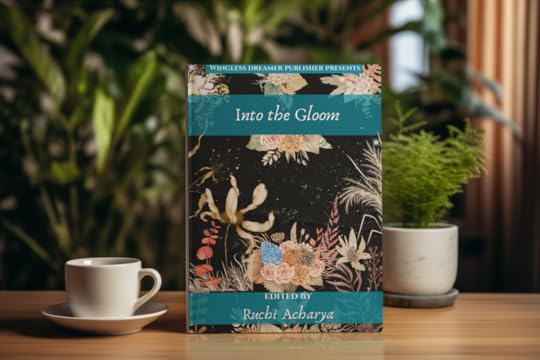
In all honesty, I am a big fan of dark poetry because there are more than 50 different shades of darkness. "Into the Gloom" is a fervent anthology for English laureates who love to explore the dimensions of dark poetry.
Walk your mind through the garden of poets who delve into the gloominess to yield mastery in creating art through their spine-chilling, nerve-wracking, and goosebumps-inducing verses.
This poetry book navigates life's complexities through haunting verses and evocative imagery. Together, let's dive into the coldness and blueness of introspection shown by these dark poets. With profound insights and lyrical prose, "Into the Gloom" invites readers to confront their innermost fears and discover the light within the darkness. I bet, you couldn't agree more with me once you finish reading this poetry book, simply because, once you read this book, it will change your perspective towards dark poetry. Unlike other dark poems, in this book, we have compiled poems that can touch your soul and evoke the sensation of love for the darkness. Be the judge by yourself and check it out.

Another most prized possession book from the Wingless Dreamer Publisher's bookshelf. I am so proud to present our anthology, "Therapeutic Power of Nature," a serene collection of poems and short stories centred around the theme of nature.
What sets it apart from other nature poetry books is that these poems have healing properties, similar to the feelings we get from simply taking a walk on the lush green grass amidst our busy schedules. I'm not kidding when I say I've read this book at least three times because it calms me down. I often get irritated with what life throws at me, so I keep this therapeutic book handy.
Esteemed psychologists widely regard nature as the ultimate form of therapy, capable of calming the mind and soothing the soul. Whether it's taking a leisurely stroll in the park, embarking on wilderness hikes, or simply sitting by a tranquil lakeside, the healing power of nature is undeniable.
With this anthology, we aim to raise awareness about mental health, foster a love for English literature, and celebrate the art of poetry while showcasing captivating artworks. Immerse yourself in the rhythmic poetry and unwind as you embark on a literary journey through the lush landscapes of our anthology. Sit back, relax, and enjoy your summer of 2024 with our collection. This book is now exclusively available on Amazon.

"Breathing Poetry," an anthology by Wingless Dreamer Publisher, where the power of words takes center stage, Within these pages, you will encounter the remarkable works of mind-blowing wordsmiths whose poetry transcends the ordinary and touches the depths of the soul.
As you turn the pages of "Breathing Poetry," you will find yourself transported across time and space, engulfed in the beauty and complexity of the human experience. You will witness moments of joy and sorrow, triumph and defeat, woven together with threads of raw emotion and unbridled passion.
Yes, in this book, we have decided to compile all the significant emotional traits. Whether you seek solace in the quiet corners of solitude or yearn for adventure amidst the chaos of life, "Breathing Poetry" is a companion like no other. It is a sanctuary for the weary soul, a refuge for the restless mind, and a reminder that, amidst the hustle and bustle of everyday life, there is beauty to be found in the simplest of words.
So, dear reader, if you crave a moment of respite, a chance to lose yourself in the rhythm of verse, then look no further. "Breathing Poetry" awaits, ready to whisk you away on a journey of discovery and delight. Sit back, relax, and let the words carry you to places unknown.

This is one of our recent books and I am not joking but we have received reviews beyond our expectations. Readers loved it and I must say the book turns out to be phenomenal as well.
Dive into the rich tapestry of human experience with "Threads of Time," a captivating anthology curated by Wingless Dreamer Publisher. Within these pages lies an exquisite collection of prose and poetry, each piece meticulously crafted to evoke a spectrum of emotions. As the entrusted custodian of this literary masterpiece, Wingless Dreamer is deeply honored to present to you a compilation that transcends time itself. From the depths of sorrow to the heights of joy, each word within "Threads of Time" has been carefully selected and woven into the fabric of this anthology, inviting readers to immerse themselves in its profound depths.
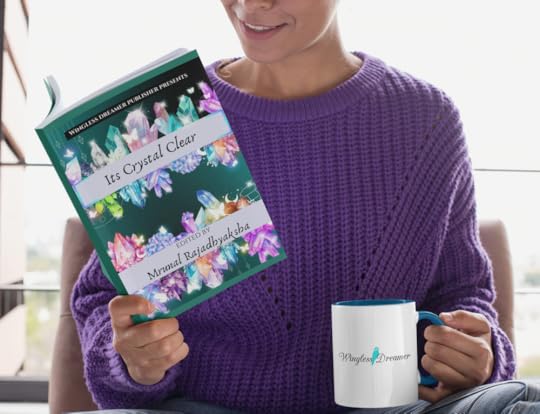
Are you a fan of winter just like us? Do you feel the darkness creeping in as the leaves wither and fall? Or do you eagerly wait for the first snowflake to hit your hand? Either way, this anthology will have something for you!
It's a shame how people have portrayed Winter as a sick season. No, there's beauty in that too. Without the winter season, there will be no imperative emotions attached to spring, fall, rain or summer. Personally, I consider the season of winter to be the mother of all.
It’s Crystal Clear! Contains poems from various poets describing the joy of winter, and also the darkness that accompanies it. Check it out.
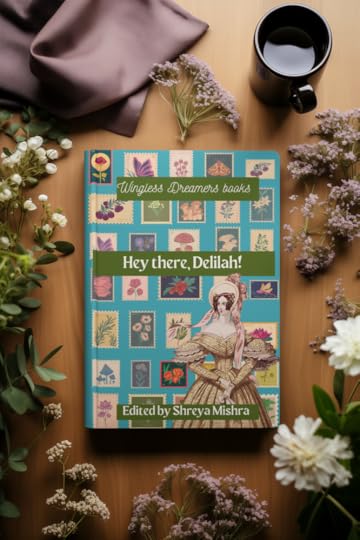
One of our most prized possessions, Hey there, Delilah!
Get yourself drowned in the meanings hidden behind these poetic verses beautifully endorsed in this book. Don't get carried away by the profound love and sentimental poems shown by aspiring poets from all around the world.
This Anthology offers a refreshing oasis in the desert of life's struggles. Within its pages, readers embark on a journey filled with vibrant imagery and emotional depth, ranging from heartwarming tales to soul-stirring experiences.
Each poet weaves a spellbinding narrative, captivating the mind and touching the heart. As you journey through this anthology, every piece leaves an indelible mark, compelling you to revisit its pages time and again, finding solace and inspiration within its words. Don't miss out on this immersive and unforgettable read that promises to resonate with you long after you've turned the final page.

The web of poetry extends even further as we introduce our open-themed anthology book ‘Cradle Of Balladry’. The infinite stream of poetry continues to flow as we bind a multitude of genres such as Love, Anger, Compassion, War, and Historical poetry; within two cerulean covers. Explore the depths of poetry with us without any barriers or restrictions as poets from all over the world come together to bring you a few of their best works. Enjoy your journey.
I hope this blog post proves useful for avid readers seeking direction. A reader must always remain hopeful in their quest to find the right book with time. If you haven't found one yet, perhaps the universe is signalling for you to write your own. How does that idea sound to you? As the founder of Wingless Dreamer Publisher, I truly appreciate the tranquillity one can gain from reading and writing in this chaotic world. All you need is the right book, a sip of warm hot chocolate at your favourite coffee shop, and some noise-cancelling AirPods or the melodious sound of rain playing in the background. Life's good if you know how to make it. I insist on reading these amazing books, not just because they are from our printing press, but because they are genuinely thought-provoking and captivating, as mentioned above. Happy reading!
ABOUT THE BLOGGER

Ruchi Acharya, hailing from India, is a distinguished English Laureate. Over the past two years, she has gained immense recognition for her remarkable publications, with her works appearing in more than 100 renowned platforms. Ruchi's true passion lies in supporting fellow writers and artists, evident through her establishment of Wingless Dreamer Publisher, a company dedicated to empowering and promoting creative individuals.
With a profound interest in Poetry, Ruchi delves deep into the intricacies of these literary realms. Among her cherished literary treasures, works by Jane Austen holds a special place in her heart.
Ruchi Acharya has become a prominent figure in the literary world, having made appearances in numerous interviews spanning the globe. During these engagements, she passionately advocates for the appreciation of poetry, emphasizing that human emotions are at the core of our existence. She urges others not to take this profound aspect of life for granted.



